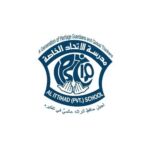LEARNING
OUR
Stories
"Assessment is a bridge between teaching and learning"
Dylan Williams- Developer
PURPOPSE
Assessment is a procedure for drawing inferences, gathering, analyzing, interpreting, and reporting information about a student’s attainment and progress over time. We use different type of assessments to make sure all our decisions about students’ learning and pedagogy are data driven. A coherent, systematic approach to assessment is an integral part of the teaching and learning process
“Attainment” in curriculum-based assessments refers to the level the student has reached in specific curriculum standards. Attainment can be presented by letter, number, or adjective. “Progress” represents students’ growth.
The Curriculum and Assessment are aligned with California State Standards across all subjects, NGSS for Science, and MOE standards for Islamic Education, Arabic, Social Studies and Moral Education.
Effective Assessment Goals
Assessment processes is to be reliable and effective in order to:
-
- Measure the students’ capacities in each of the cognitive knowledge, application, and reasoning.
-
- Tailor the individual learners' needs.
-
- Reflecting continuously on assessment data to inform curriculum and planning.
-
- Report student’s achievement based on evidence and shared understanding.
-
- Create a learner profile that is constructive for students’ learning, and informative to parents, and teachers.
-
- Apply appropriate intervention strategies.
Assessment Approaches
Internal Assessments:
Formative Assessment data is an ongoing means of evaluating students’ progress and attainment. Formative assessment is used as a tool of “assessment for learning” and “assessment as learning” that inform instructions and planning, as well a tool to motivate students and provide instant constructive feedback.
Summative assessment data refers to the assessment conducted at the end of each semester or end of the unit to determine progress against initial attainment. A summative assessment can be in the form of written or digital tests also performance-based tasks. The validity of the results is ensured by assessment moderation.
Diagnostic assessment that takes place early at the beginning of the year. The diagnostic data will be used as a starting point to measure students’ attainment and progress.
Performance based assessment is a form of testing that requires students to perform a task rather than select an answer from a ready-made list. It is any learning activity or assessment that asks students to perform to showcase their knowledge, understanding, and proficiency. Performance tasks yield a tangible product and process that serve as evidence of learning.
External & International Assessments:
Measure of Academic Progress,NWEA MAP, US curriculum-based assessment is conducted to provide essential information about what each student knows and is ready to learn in Reading, Language Usage, Math, and Science. It measures student’s progress and growth. MAP is administered three times for grades 3 to 9 and twice for grades 1, 2, 10 and 11 in the same school year: Fall, Winter, and Spring. MAP is a requirement of the UAE National Agenda Parameters.
Cognitive Ability Test – CAT4 measures verbal, non-verbal, and quantitative reasoning, as well as an element of spatial ability. These four measures apply to all curricula. CAT4 data is used to provide a comprehensive overview of a student’s reasoning ability, identifying students’ strengths, weaknesses, and learning preferences and provides essential data for personalized learning. Grades 1, 3, 5, 6, 7, 9, 11, and all new students should sit for the test before the end of November. CAT4 is a requirement of the UAE National Agenda Parameters.
Pupil Attitude Towards Self and School Test – PASS identifies, for individual students and groups of students, the perceived learning capability, self-regard, preparedness for learning, confidence in learning, response to curriculum demands, and attitude towards teachers, schools, and attendance. Grades 5, 7, 9, and 11 students should sit for the test before the end of November. PASS is a requirement of the UAE National Agenda Parameters.
PSAT and SAT-I test data is used to measure the student’s achievement by the end of grade 12. Grades 11 and 12 students take SAT while grade 10 students take PSAT test.
Advanced Placement Test is offered for Grade 12 students qualified and willing to set for the AP-subject tests.
The TOEFL and IELTS are English proficiency assessments that measure student capabilities in the language by the end of Grade 12.
The Emirates SAT (EmSAT) is the UAE benchmark test for Grade 12 students in Arabic, English, Math, and Physics. EmSAT is one of the equivalency requirements for Emirati students.
TIMSS, PIRLS, PISA & PISA-based Test for Schools are international assessments and conducted based on the UAE National Agenda requirements:
-
- TIMSS is the Trend in International Mathematics and Science Study and assesses fourth and eighth grade students every four years. The last TIMSS was conducted in 2019.
-
- PISA is the Program for International Student Assessment and takes place every three years. 15-years old students participate in PISA to assess their proficiency level in English, math, and science. The last PISA was in 2018.
-
- PISA-bTS is another form of PISA but takes place every year. Grade 10 students take the test to benchmark their proficiency level in English, math, and science.
-
- Digital IPIRLS 2021 is an international assessment of reading comprehension at the 4th grade. PIRLS is conducted every 5 years.
Reporting
Reporting is intended to keep parents well informed about the academic and pastoral welfare of the students. It is essential to involve and engage the parents in the educational process. Internal and international assessment results are reported to students, parents, teachers, and the school leadership team.

READY FOR THE
Future
Al Ittihad Private School – Al Mamzar
PO Box 5126
Cairo St., Al Mamzar
Dubai, United Arab Emirates
-
+971 4 296 6314
-
+971 4 296 6407
-
info@ipsmamzar.com
-
Get Directions
GET CONNECTED
© Al Ittihad Private School – All Rights Reserved





